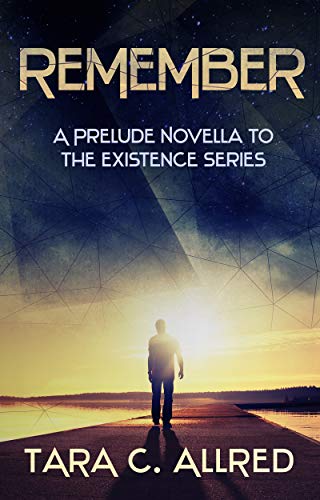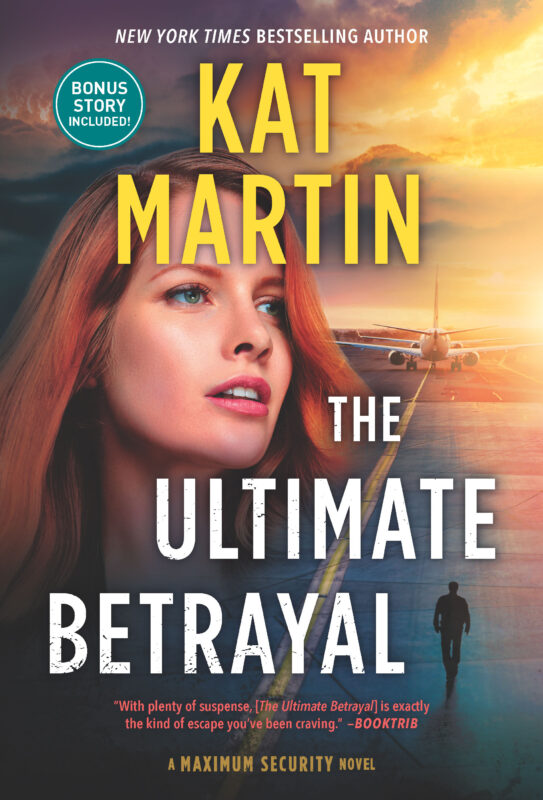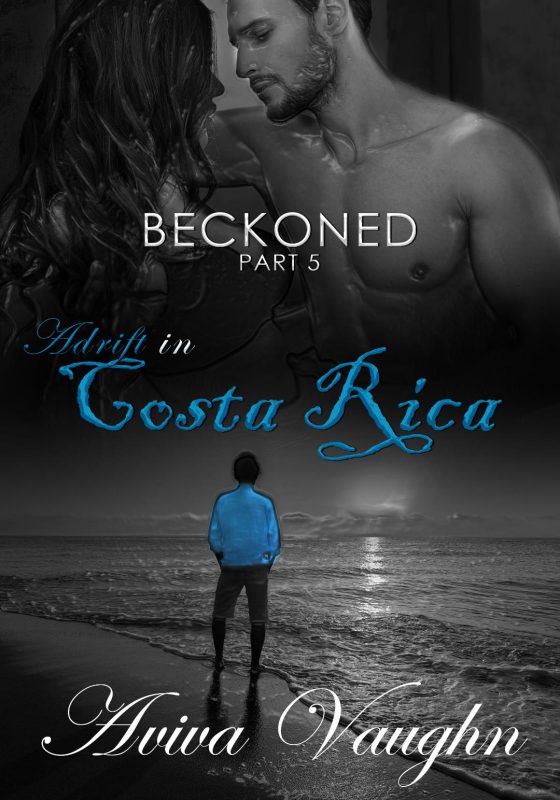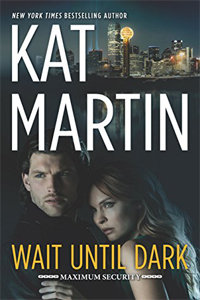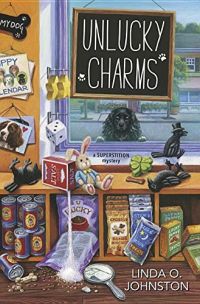When a writer needs a hug… by Jina Bacarr
July 11, 2020 by Jina Bacarr in category Jina’s Book Chat, Writing tagged as books, editing, historical, Paris, writing, WW 2
Writing never gets easier… if anything, it’s more difficult.
Why? Because we expect more of ourselves. Even more so when you’re doing edits from your fab editor who’s really an angel in disguise. We want to make our story as perfect as possible and not disappoint her. She believes in you. Your characters believe in you. After all, their lives are in your hands.
But like a chocolate soufflé, a lot can go wrong.
Your computer screen goes blue… computer updates send your heart pounding as you pray you get all your pretty icons back…. a character keeps you up at nights because you’re so worried about how you’re going to save her butt and yours.
There’s more:
You go over your word count.
You can’t find your timeline/fact sheet for your heroine (when you’re writing about Paris during WW 2 this is crucial).
You ‘re so tired, you push the wrong button on your keyboard and everything in Track Changes disappears
You realize a secondary relationship ain’t working because the hero is based on an old boyfriend with a big ego. You dump him. Get a new guy for the part. And he’s an absolute dream.
You work from dawn-to-dawn the week before edits are due and have no idea what day it is.
And worst of all, you run out of coffee.
But I did it!
I sent my editor the edited manuscript at 7:37 a.m. on a sunny morning… and I felt numb. No whistles went off. No bells. Just the quiet hum of my computer.
I needed a hug.
Someone telling me ‘I done good’.
Yes, I’m totally proud of what I accomplished, but writing can be a lonely business. And it’s hard work, especially writing historicals. (My story follows a dual timeline from 1926 to 1950 and present day. Silent films, Nazis in Paris, the film business in Hollywood and France.)
So I did what I swore I wouldn’t after I sent the m/s: I opened it back up and read some of my favorite passages. Laughed and cried again with my characters… sat amazed at how they accomplished their goals… fell in love with them all over again… and cheered when they beat the Nazis!
And I got that hug.
From my characters. Reminding me why I write. Because I so love them, the stories, the chance to give them life.
So, merci beaucoup, mes bons amis! Thank you, my friends.
Jina
PS — I’ll keep you posted on my Paris WW 2 historical. Cover ideas coming soon…
4 0 Read moreCHOICES
June 19, 2020 by Jenny Jensen in category On writing . . . by Jenny Jensen, Writing tagged as inspiration, writing, writing craft
In the oceans of writing instruction and advice available to anyone with a search engine I look for everything publishers have to say about current trends. Since you can’t really access publisher’s marketing info — and certainly not Amazon’s sales data — that’s as close to the horse’s mouth as I can get to learn about sales trends. That’s info that helps me help my clients. One offering stands out about contemporary fiction: keep the narrative fast paced. This digital world of FX, Twitter, flash fiction, etc. has our brains wired for lightening fast action. There’s not a lot of room for ruminating on superfluous details of landscape, the nature of family bonds or the sounds of church bells. The story has to gallop from the starting gate to capture and compel a reader. I think we all get that. What’s interesting to me are the narrative techniques an author can use to set and maintain that just-right pace.
Voice and tense are formidable tools to heighten tension, move action and hook and hold the reader. I don’t know what goes into an author’s decisions about what tense and voice to use but I’ll venture to guess it most often comes organically. When a protagonist begins to take shape in the creative sphere of the brain the author hears 3rd Person or 1st Person (which is tricky to write but such fun to read when done well) and the story grows in the mind in the present or past tense. Past tense is most common in fiction (and has been for eons) and is almost always 3rd Person. Present tense is more commonly used with 1st P voice; it creates an immediacy and intimacy that’s very engaging.
I’d never given a thought to 3rd Person present tense. Then I discovered the who-dun-it series of British writer Bruce Beckham. He’s amazing! Set in Britain’s Lake District his detective, Skelgill, is an irresistible mixture of irascible, self-centered, scruffy, generous and intuitive. Every character is roundly drawn and intriguing, the setting is as integral a character as the murderer and the pace never lags. Beckham accomplishes all of this in 3rd Person (omniscient) voice, present tense. It’s an unusual combination but in the hands of this author it is riveting.
It’s how he uses this tool to set and maintain a perfect pace and to draw the reader so fully into his world that amazed me. Reading a narrative described to you by an unknown, unseen, non-judgmental voice as the action unfolds just shouldn’t work. But it does. It’s like having your eyes covered at the movies while a very erudite friend describes what is happening on-screen.
Beckham is a master wordsmith and so uses dialog to show characterization and plot points but the present tense and 3rd P voice puts the reader in a front row seat as the action scenes unfold before our eyes. I didn’t feel as though I was right there — I was right there.
A writer’s choice of voice and tense would have to be dependent, in some part, on the story they are telling. Not every tale will fit just any combination. But it is amazing what a powerful difference the choice can make.

JENNY JENSEN
jennyjenseneditor.com
With a BA in Anthropology and English I pursued a career in advertising and writing and segued into developmental editing. It was a great choice for me. I love the process of creating and am privileged to be part of that process for so many great voices — voices both seasoned and new.
I’ve worked on nearly 400 books over 25 years, books by noted authors published by New York houses as well as with Indie bestsellers and Amazon dynamos. From Air Force manuals and marketing materials to memoirs, thrillers, sci fi and romance, my services range from copyediting to developmental coaching.
Having worked in advertising and marketing, I am always cognizant of the marketplace in which the author’s work will be seen. I coach for content and style with that knowledge in mind in order to maximize sales and/or educational potential. My objective is to help the author’s material stand out from an ever more crowded and competitive field.
0 0 Read moreA War of Words? I think not.
June 15, 2020 by Rebecca Forster in category The Write Life by Rebecca Forster tagged as Authors, Craft, inspiration, writing
Defintion of incite
to move to action : stir up : spur on : urge on.
When I first saw this image, I paused. It almost looks as if the words are at war with one another. Just typing incite these days might result in an emotional response: dismay, frustration, and even fury. My author response was quite different. As with all words, the definition of this one depends on your point of view. From where I sit to incite is not political, it defines the core of my craft.
As an avid reader, I instinctively knew what made a story great: breathless action, sympathetic characters, and a plot that could intellectually engage me for hundreds of pages. What I learned as a fledgling writer was that I couldn’t have any of these things without a well-grounded inciting incident. This is the thing, the act, that sparks a literary fire.
Today, we seem to wake up to inciting incidents every morning. They are big, bold, and world changing. For an author, an inciting incident is a means to and end. My job is to see through the chaos and write about the individuals caught up in it. I must craft and communicate insights (noun; the capacity to gain an accurate and deep understanding of a person or thing) into the human condition that has been super-charged by the inciting incident.
I just published a novella entitled The Death of Me that illustrates this part of an author’s job. In The Death of Me, the inciting incident is the brutal murder of a gentle mountain grocer. The crime inflames the hero as a lawman, hurts his heart as the dead man’s friend, and illuminates his prejudices regarding his own community. Given this foundation, I was presented with choices. I could write about the sheriff’s emotional struggle, his procedural training, or his spiritual journey. Each choice would lead me in the direction of a different genre. I chose to address all three, but with an emphasis on the procedural aspects of the sheriff’s story because I am a thriller writer.
Still, the incident of the grocery’s murder would not be as interesting without the insights into those who survived him, loved him, hated him, and those who committed the crime. As the story unfolded, I was responsible for giving the cast of characters individual points of view about death, desire, love, and most of all justice. In other words, insights into the hearts and minds of each character informed the heart and mind of the hero and the reader.
I chose the image above precisely because it is meant to explain one thing but instead led me to quite another thought. This image is about spelling and yet in the context of our world today, in the hands of author’s and artists, there is no war between these two words. One word is not pitted against the other, one word should not be mistaken for the other. Rather the the meaning of the first word should make the second meaningful.
Nothing Found
To sleep or not to sleep… why I stayed up till dawn every night to finish my book by Jina Bacarr
June 11, 2020 by Jina Bacarr in category Jina’s Book Chat, Writing tagged as author, Boldwood, Boldwood Books, historical fiction, historical romance, Ireland, Queenstown, romance', ship of dreams, stories, story, Titanic, Writer, writingI’ve worked nights a lot.
On late night radio.
In a U.S. Army service club
Dancer/Singer/Cocktail waitress.
Theatre productions.
Yeah, a lot. But you’d think as a writer I could choose to work the day shift. I tried, really tried, but my brain seems to be wired to work late.
So here I am at 3:36 a.m. writing my Slice of Orange Blog for this month. I don’ t know if it’s because of the lovely quiet, the comforting shades of night that envelop you like a cozy blanket, or the two pots of coffee, but I’m a night writer.
What’s your favorite time to write? Day, night?
Leave me a comment and it will be fun to see who writes when. But the bottom line is,
WE WRITE.
And that’s all that matters.
Jina
PS — I just finished my Paris WW 2 historical fiction story. Wow, what a challenge.
I adore Paris… I remember as a kid visiting the City of Light with my parents.
I never forgot seeing buildings around the city that still had bullet holes in them from the German Occupation.
I remember wondering what it was like in 1943 if you were a Resistance fighter… now I know. My book is about a brave woman who was.
Merci.
————–
Two women hold the keys to his heart. Only one will survive that fateful night…
When Ava O’Reilly is wrongly accused of stealing from her employer, she has no option but to flee Ireland. The law is after her, and she has only one chance at escape – the Titanic.
Aboard the ship of dreams, she runs straight into the arms of Captain ‘Buck’ Blackthorn, a dashing gentleman gambler who promises to be her protector. He is intrigued by her Irish beauty and manages to disguise her as the maid of his good friend, the lovely Countess of Marbury. Little does he realise, that the Countess is also in love with him.
As the fateful night approaches, tragedy strikes further when Ava is separated from Buck, and must make a daring choice that will change her life forever…
A sweeping historical romance set aboard the Titanic, from the author of Her Lost Love (Christmas Once Again).
Praise for Jina Bacarr:
‘A delightful holiday romance that has all the charm of a classic Christmas movie. Christmas Once Again is perfect for anyone who loves a holiday romance brimming with mistletoe, hope, and what ifs.’ Andie Newton, author of The Girl I Left Behind ‘A breathtaking holiday romance that is sure to stay with you long after reading’
‘A mesmerizing holiday romance that is sure to sweep you off your feet and take you away to another place, another time.’
‘A fabulous book you won’t want to miss’
THE RUNAWAY GIRL e-book, print and audio book:
0 0 Read moreSomething to Think About
May 15, 2020 by Rebecca Forster in category Writing tagged as coronavirus, e-readers, indie authors, indie publishing, inspiration, readers, writing, writing craft, writing life
Last night all I could think about was the deadline for this blog post. I had put it off all month. At the last minute I was hoping to write something inspirational for both readers and writers. While hope springs eternal, I found myself pondering – and pondering – what that perfect message should be.
If I’m going to be honest, I knew I wouldn’t come up with anything substantial because I have been distracted. When I’m distracted I usually sit down with a friend at a coffee shop and hash out whatever is on my mind until I’m back on track. Since I can’t do that you’re ‘it’, my friends in a virtual coffee shop. I’ll tell you what I’ve been doing while I’ve been locked down and pondering this post. We’ll start with the garden and move on from there.
Tomato plants. I haven’t actually thought about the tomatoes as much as I have been checking on them. Going outside every fifteen minutes is a nice break from staring at my blank computer screen or at my husband napping on the couch. No matter how often I check, though, the tomatoes still have not turned red and my husband still has not gone back to work.
My fabric stash. Over the last eight weeks I have knocked it down some. Here’s the count: five blouses, a quilt top, a fully-lined summer suit (1 dress that would have fit 15 years ago when I was 25 pounds lighter), and ten face masks. Here’s my question: is sewing my stash like a tree falling in the forest or is it like ‘build it and they will come’? I think it’s the latter. When the day comes to have dinner in a restaurant I will have lots to wear.

Work. Honestly, my brain has been mush when it comes to writing a new book. I have an idea but I couldn’t get it to gel, so I looked through my files and reread some of my early work. I had so much fun that I edited and published five novels from the 90s. I also published The Death of Me, a novella I wrote that morphed into a novel (Before Her Eyes). These two works are as different as they are similar. Some times pondering one thing will lead to another. The trick is not to ignore the ‘other’. Productivity: mission accomplished.
Finally, I’ve been pondering important things: the individual versus the greater good, the constitution and ‘guidelines’ as our lockdown stretches into yet another week, another month, another century. My heart is sad for those who are sick and who have died; my heart is breaking for my relatives and friends who are losing their livelihood, home and, well, everything they have worked hard for. I won’t tell you which side I’m on when it comes to hunkering down or opening up. I will only say that I realize that what I have been pondering all along is something readers and writers have always been inspired by: story. No matter what road we choose there will be stories at the end of it. We are writing them now.
These will be tales of tragedy and triumph; there will be something to laugh at and something to cry over. We will all see these events – and each other – differently. Eventually there will come a time when we put pondering aside so that we can sit with friends at a coffee shop, tell our stories, and hug each other when all is said and done.
Affiliate Links
A Slice of Orange is an affiliate with some of the booksellers listed on this website, including Barnes & Nobel, Books A Million, iBooks, Kobo, and Smashwords. This means A Slice of Orange may earn a small advertising fee from sales made through the links used on this website. There are reminders of these affiliate links on the pages for individual books.
Search A Slice of Orange
Find a Column
Archives
Featured Books
REMEMBERED: A Prelude Novella to The Existence Series
One invention and two men hoping to change the way humans connect—through memory exchanges
More info →THE ULTIMATE BETRAYAL
To prove her father’s innocence, she’ll have to turn a killer's sights on herself.
More info →BECKONED, PART 5: ADRIFT IN COSTA RICA
How do you heal a broken heart?
More info →Newsletter
Contributing Authors
Search A Slice of Orange
Find a Column
Archives
Authors in the Bookstore
- A. E. Decker
- A. J. Scudiere
- A.J. Sidransky
- A.M. Roark
- Abby Collette
- Alanna Lucus
- Albert Marrin
- Alice Duncan
- Alina K. Field
- Alison Green Myers
- Andi Lawrencovna
- Andrew C Raiford
- Angela Pryce
- Aviva Vaughn
- Barbara Ankrum
- Bethlehem Writers Group, LLC
- Carol L. Wright
- Celeste Barclay
- Christina Alexandra
- Christopher D. Ochs
- Claire Davon
- Claire Naden
- Courtnee Turner Hoyle
- Courtney Annicchiarico
- D. Lieber
- Daniel V. Meier Jr.
- Debra Dixon
- Debra H. Goldstein
- Debra Holland
- Dee Ann Palmer
- Denise M. Colby
- Diane Benefiel
- Diane Sismour
- Dianna Sinovic
- DT Krippene
- E.B. Dawson
- Emilie Dallaire
- Emily Brightwell
- Emily PW Murphy
- Fae Rowen
- Faith L. Justice
- Frances Amati
- Geralyn Corcillo
- Glynnis Campbell
- Greg Jolley
- H. O. Charles
- Jaclyn Roché
- Jacqueline Diamond
- Janet Lynn and Will Zeilinger
- Jaya Mehta
- Jeannine Atkins
- Jeff Baird
- Jenna Barwin
- Jenne Kern
- Jennifer D. Bokal
- Jennifer Lyon
- Jerome W. McFadden
- Jill Piscitello
- Jina Bacarr
- Jo A. Hiestand
- Jodi Bogert
- Jolina Petersheim
- Jonathan Maberry
- Joy Allyson
- Judy Duarte
- Justin Murphy
- Justine Davis
- Kat Martin
- Kidd Wadsworth
- Kitty Bucholtz
- Kristy Tate
- Larry Deibert
- Larry Hamilton
- Laura Drake
- Laurie Stevens
- Leslie Knowles
- Li-Ying Lundquist
- Linda Carroll-Bradd
- Linda Lappin
- Linda McLaughlin
- Linda O. Johnston
- Lisa Preston
- Lolo Paige
- Loran Holt
- Lynette M. Burrows
- Lyssa Kay Adams
- Madeline Ash
- Margarita Engle
- Marguerite Quantaine
- Marianne H. Donley
- Mary Castillo
- Maureen Klovers
- Megan Haskell
- Melanie Waterbury
- Melisa Rivero
- Melissa Chambers
- Melodie Winawer
- Meriam Wilhelm
- Mikel J. Wilson
- Mindy Neff
- Monica McCabe
- Nancy Brashear
- Neetu Malik
- Nikki Prince
- Once Upon Anthologies
- Paula Gail Benson
- Penny Reid
- Peter J Barbour
- Priscilla Oliveras
- R. H. Kohno
- Rachel Hailey
- Ralph Hieb
- Ramcy Diek
- Ransom Stephens
- Rebecca Forster
- Renae Wrich
- Roxy Matthews
- Ryder Hunte Clancy
- Sally Paradysz
- Sheila Colón-Bagley
- Simone de Muñoz
- Sophie Barnes
- Susan Kaye Quinn
- Susan Lynn Meyer
- Susan Squires
- T. D. Fox
- Tara C. Allred
- Tara Lain
- Tari Lynn Jewett
- Terri Osburn
- Tracy Reed
- Vera Jane Cook
- Vicki Crum
- Writing Something Romantic
Affiliate Links
A Slice of Orange is an affiliate with some of the booksellers listed on this website, including Barnes & Nobel, Books A Million, iBooks, Kobo, and Smashwords. This means A Slice of Orange may earn a small advertising fee from sales made through the links used on this website. There are reminders of these affiliate links on the pages for individual books.

















